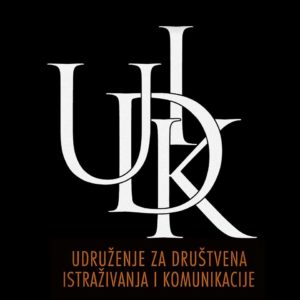 The Association for Social Research and Communication (UDIK) reminds the public of the anniversary of the war crimes that took place in Pionirska Street and Bikavac in Višegrad in June 1992.
The Association for Social Research and Communication (UDIK) reminds the public of the anniversary of the war crimes that took place in Pionirska Street and Bikavac in Višegrad in June 1992.
In the Pionirska Street Fire, on June 14, 1992, a group of Bosniak civilians were locked en masse in the house of Adem Omeragić in Višegrad. The house was set ablaze and the occupants were left to burn to death. About seventy Bosniak women, children and elderly men, most of them from the village of Koritnik, were confined in a house in Pionirska Street by cousins Milan and Sredoje Lukić, leaders of the paramilitary unit called Avengers. The youngest victim was two days old.A similar scenario happened on June 27, when approximately seventy Bosniak civilians were forced into one room in the house of Meho Aljić in the settlement of Bikavac. After the captives were robbed, the house was set on fire and the occupants were burned alive. According to the testimony of Zehra Turjačanin before ICTY, there were many children in the house, the youngest less than one year old. Such crimes were repeated at several other locations in Višegrad.
For war crimes in Višegrad the ICTY sentenced Milan Lukić to life imprisonment, Sredoje Lukić to twenty-seven years, and Mitar Vasiljević to fifteen years in prison. The Court of Bosnia and Herzegovina convicted Boban Šimšić, Dragan Šekarić, Mićo Jovičić, Miloš Pantelić, Momir Savić, Momir Tasić, Nenad Tanasković, Oliver Krsmanović, Petar Kovačević, Predrag Milisavljević, Predrag Tasić, Radomir Šušnjar, Vitomir Racković, Vuk Ratković and Željko Lelek. The Cantonal Court in Sarajevo sentenced Novo Rajak to five years in prison. In March 2024, the State Court issued a first-instance verdict in which Milomir Đuričić was sentenced to five and Vukadin Spasojević to eleven years in prison for the crimes committed against the Bosniak population in the Uzamnica camp in 1992 and 1993.
As a result of monstrous crimes committed by members of various formations of the Army of Republika Srpska (VRS), Višegrad became known as the city of femicides and child killers. The site of mass crimes against the Bosniak civilian population. Unfortunately, today it serves as an example of a local community that, instead of facing the war past, chooses to create false narratives and glorify war criminals.Višegrad is presented as an important tourist potential of Republika Srpska, but the fact is that there is no place for the truth in that place, but only for the denial of war crimes.
We are once again appealing to the witnesses of the war events in Višegrad to reveal the whereabouts of the remains of those killed in Pionirska Street and Bikavac, as well as other locations. The process of dealing with the past should start from ourselves by showing more will and effort for the suffering of others instead of self-victimization. More than three decades is a small historical period, but it is too long for the families of the murdered who are waiting to bury their loved ones.
On the occasion of the thirty-second anniversary, we remember the civilian war victims fromVišegrad.
 UDIK Udruženje za društvena istraživanja i komunikacije
UDIK Udruženje za društvena istraživanja i komunikacije

